Related Research Articles
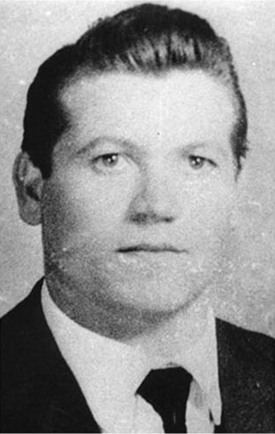
Bernardo Provenzano was an Italian mobster and chief of the Sicilian Mafia clan known as the Corleonesi, a Mafia faction that originated in the town of Corleone, and de facto the boss of bosses. His nickname was Binnu u tratturi because, in the words of one informant, "he mows people down". Another nickname was il ragioniere, due to his apparently subtle and low-key approach to running his crime empire, at least in contrast to some of his more violent predecessors.

Leoluca Bagarella is an Italian criminal and member of the Sicilian Mafia. He is from the town of Corleone. Following Salvatore Riina's arrest in early 1993, Bagarella became the head of the stragist strategy faction, opposing another faction commanded by the successor designate Bernardo Provenzano, creating a real rift in Cosa Nostra. Bagarella was captured in 1995, having been a fugitive for four years, and sentenced to life imprisonment for Mafia association and multiple murders.
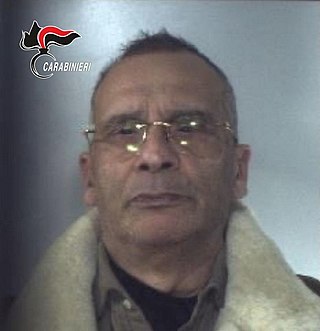
Matteo Messina Denaro, also known as Diabolik, is a Sicilian Mafia boss from Castelvetrano. He was considered to be one of the new leaders of the Sicilian mob after the arrests of Bernardo Provenzano on 11 April 2006 and Salvatore Lo Piccolo in November 2007. The son of a Mafia boss, Denaro became known nationally on 12 April 2001 when the magazine L'Espresso put him on the cover with the headline: Ecco il nuovo capo della Mafia.

Pietro Aglieri is a Sicilian mafioso from the Guadagna neighbourhood of Palermo. He is known as 'u Signurinu for his relatively sophisticated education and refined manners. He had a classical education and studied Greek, Latin, philosophy, history and literature to a level that guaranteed him entry to university. Instead he chose for a career in Cosa Nostra. The British newspaper The Guardian listed him as the emerging man of the year 1995 in Italy.
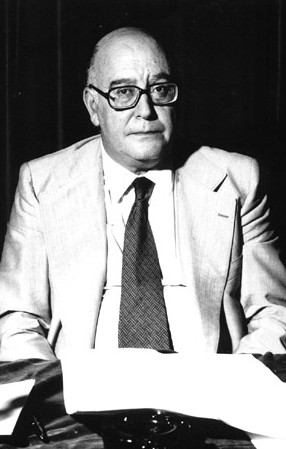
The Sicilian Mafia Commission, known as Commissione or Cupola, is a body of leading Sicilian Mafia members to decide on important questions concerning the actions of, and settling disputes within the Sicilian Mafia or Cosa Nostra. It is composed of representatives of a mandamento that are called capo mandamento or rappresentante. The Commission is not a central government of the Mafia, but a representative mechanism for consultation of independent Mafia families who decide by consensus. "Contrary to the wide-spread image presented by the media, these superordinate bodies of coordination cannot be compared with the executive boards of major legal firms. Their power is intentionally limited [and] it would be entirely wrong to see in the Cosa Nostra a centrally managed, internationally active Mafia holding company," according to criminologist Letizia Paoli.
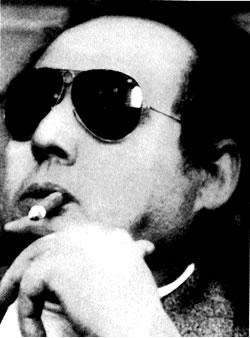
The Corleonesi Mafia clan was a faction within the Corleone family of the Sicilian Mafia, formed in the 1970s. Notable leaders included Luciano Leggio, Salvatore Riina, Bernardo Provenzano, and Leoluca Bagarella.

The Cuntrera-Caruana Mafia clan was a Mafia clan of the Cosa Nostra and held a key position in the illicit drug trade and money laundering for Cosa Nostra in the 1980s and 1990s. The Italian press baptized the clan as "The Rothschilds of the Mafia" or "The Bankers of Cosa Nostra".
The Second Mafia War was a period of conflict involving the Sicilian Mafia, mostly taking place from the late 1970s to the early 1990s and involved thousands of homicides. Sometimes referred to as The Great Mafia War or the Mattanza, it involved the entire Mafia and radically altered the power balance within the organization. In addition to the violence within the Mafia itself, there was violence against the state, including a campaign of deliberate assassinations of judges, prosecutors, detectives, politicians, activists and other ideological enemies. In turn, the war resulted in a major crackdown against the Mafia, helped by the pentiti, Mafiosi who collaborated with the authorities after losing so many friends and relatives to the fighting. In effect, the conflict helped end the secrecy of the Mafia.

Mauro De Mauro was an Italian investigative journalist. Originally a supporter of Benito Mussolini's Fascist regime, De Mauro eventually became a journalist with the left-leaning newspaper L'Ora in Palermo. He disappeared in September 1970 and his body has never been found. The disappearance and probable death of the "inconvenient journalist" – as he became known as a result of his investigative reporting – remains one of the greatest unsolved mysteries in modern Italian history.
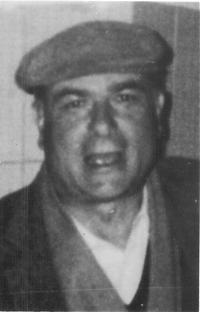
Giuseppe Morabito, nicknamed 'u tiradrittu, is an Italian criminal and a historical boss of the 'Ndrangheta, a Mafia-type organisation in the region of Calabria (Italy). He hails from Africo in the Locride. He was a fugitive from 1992 and included in the list of most wanted fugitives in Italy until his arrest in February 2004.
The Barbaro 'ndrina is a powerful clan of the 'Ndrangheta, a criminal and mafia-type organisation in Calabria, Italy. The 'ndrina belongs to the locale of the town of Platì. According to the Direzione Investigativa Antimafia, the Barbaro 'ndrina is one of the most important, if not the most important and powerful 'Ndrangheta clans, not only based in Calabria, but also in the northern Italian regions of Lombardy, Piemonte and overseas in Australia, in particular in the Griffith, New South Wales area.

Salvatore Riina, called Totò 'u Curtu, was an Italian mobster and chief of the Sicilian Mafia, known for a ruthless murder campaign that reached a peak in the early 1990s with the assassinations of Antimafia Commission prosecutors Giovanni Falcone and Paolo Borsellino, resulting in widespread public outcry and a major crackdown by the authorities. He was also known by the nicknames la belva and il capo dei capi.
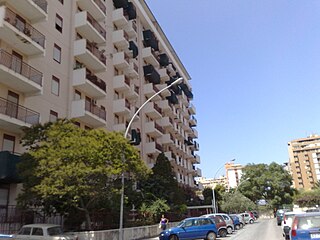
The via D'Amelio bombing was a terrorist attack by the Sicilian Mafia, which took place in Palermo, Sicily, Italy, on 19 July 1992. It killed Paolo Borsellino, the anti-mafia Italian magistrate, and five members of his police escort: Agostino Catalano, Emanuela Loi, Vincenzo Li Muli, Walter Eddie Cosina, and Claudio Traina.
Giuseppe Barbaro, also known as 'u Sparitu, is a boss of the 'Ndrangheta, a Mafia-type criminal organisation based in Calabria, Italy. He is a son of Francesco Barbaro, one of leaders of the Barbaro 'ndrina based in Platì. He was included in the list of most wanted fugitives in Italy until his arrest on December 10, 2001.
The Inzerillo Mafia clan is a Sicilian Mafia clan, formerly among the most powerful in Sicily, for at least half a century they were considered the "aristocracy of Palermo's mafia".
The term State-Mafia Pact describes an alleged series of negotiations between important Italian government officials and Cosa Nostra members that began after the period of the 1992 and 1993 terror attacks by the Sicilian Mafia with the aim to reach a deal to stop the attacks; according to other sources and hypotheses, it began even earlier. In summary, the supposed cornerstone of the deal was an end to "the Massacre Season" in return for a reduction in the detention measures provided for Italy's Article 41-bis prison regime. 41-bis was the law by which the Antimafia pool led by Giovanni Falcone had condemned hundreds of mafia members to the "hard prison regime". The negotiation hypothesis has been the subject of long investigations, both by the courts and in the media. In 2021, the Court of Appeal of Palermo acquitted a close associate of former prime minister Silvio Berlusconi, while upholding the sentences of the mafia bosses. This ruling was confirmed by the Italian Supreme Court of Cassation in 2023.
In Italy, after the Second World War, many armed, paramilitary, far-right organizations were active, as well as far-left ones.
References
- ↑ (in Italian) Falange armata, mix d'eversione e criminalità archiviostorico.corriere.it
- ↑ Pedrelli, Luciano (3 September 1991). "Il dossier 'Uno bianca' è sul tavolo di De Sica". la Repubblica. Retrieved 6 December 2021.
- ↑ Piervincenzi, Emilio (13 February 1992). "Agguato nella notte, uccisi due Carabinieri". la Repubblica. Retrieved 6 December 2021.
- ↑ "L'ira di Pippo Baudo: 'Non ho amici mafiosi'". la Repubblica. 5 November 1991. Retrieved 6 December 2021.
- ↑ Cometti, Marcello (20 December 1991). "Puglia, notte delle bombe". la Repubblica. Retrieved 6 December 2021.
- ↑ Sergi, Pantaleone (15 August 1991). "La Calabria è terra di nessuno, qui lo Stato non combatte più". la Repubblica. Retrieved 6 December 2021.
- ↑ "In 3 anni ha rivendicato tutto". la Repubblica. 27 October 1993. Retrieved 6 December 2021.
- ↑ "Attentato Lecce: si indaga sulla Sacra Corona Unita". Adnkronos. 7 January 1992. Retrieved 6 December 2021.
- ↑ Bolzoni, Attilio (6 November 1991). "La Mafia aveva avvertito Baudo". la Repubblica. Retrieved 6 December 2021.
- ↑ "Via dei Sabini, bomba beffa". la Repubblica. 19 October 1993. Retrieved 6 December 2021.
- ↑ Bonerandi, Enrico (23 October 1993). "Una bomba contro i giudici, Padova nel mirino del terrore". la Repubblica. Retrieved 6 December 2021.
- ↑ Bellu, Gianni Maria (30 January 1997). "Di Pietro: hanno fatto morire mia madre". la Repubblica. Retrieved 6 December 2021.
- 1 2 3 (in Italian) Falange Armata: ‘Riina chiudi la bocca’. Dopo 20 anni ricompare la sigla del terrore ilfattoquotidiano.it
- ↑ (in Italian) , Trattativa, l’ex capo dei Servizi Fulci: “la Falange chiamava dalle sedi Sismi, alcuni 007 usavano esplosivi” , 25 June 2015.
- 1 2 Bolzoni, Attilio. "La misteriosissima Falange Armata". la Repubblica. Retrieved 6 December 2021.
- ↑ Bellavia, Enrico (2016). Sbirri e padreterni: Storie di morti e fantasmi, di patti e ricatti, di trame e misteri (1st ed.). ISBN 9788858126097 . Retrieved 6 December 2021.
- ↑ Musolino, Lucio (26 July 2017). "Gli attentati ai carabinieri, i servizi segreti e la Falange armata: così la 'ndrangheta partecipò alla stagione stragista". Il Fatto Quotidiano. Retrieved 6 December 2021.
- ↑ Galullo, Roberto (26 February 2014). "Falange Armata si rifà viva con la lettera a Totò Riina ma la sua presenza borderline è vecchia: le indagini dei pm di Palermo". Il Sole 24 Ore. Retrieved 6 December 2021.